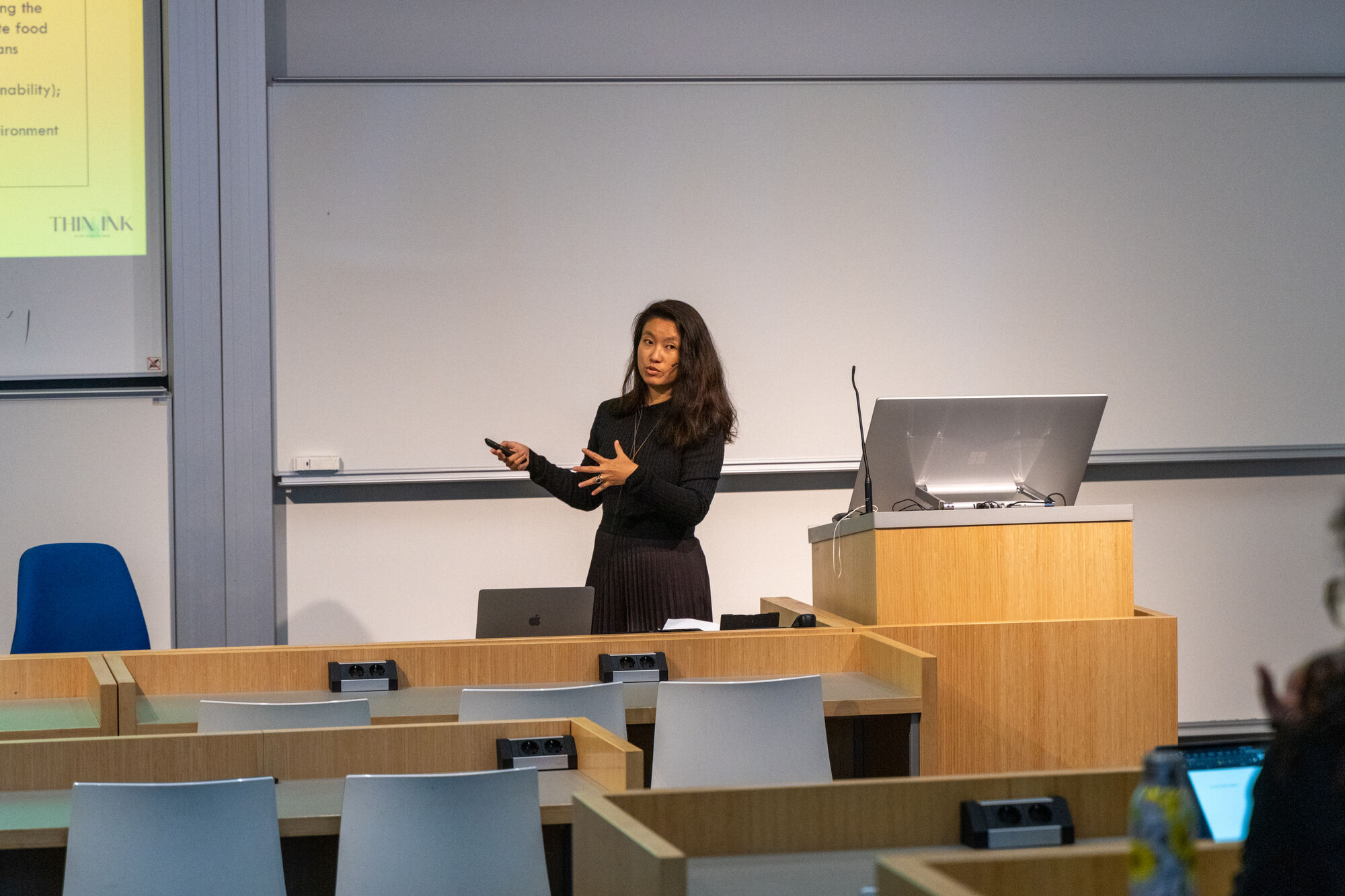Our food systems are broken
The illusion of plenty and political failures
 Thin Lei Win, an award-winning multimedia journalist specializing in food and climate issues for various international news media, recently gave a lecture at Reykjavik University. In her lecture, Our food systems are broken, and if we don't fix them, us humans will be in trouble too. Very soon, Thin Lei pointed out that the way we currently produce, process, transport, consume and discard food is not sustainable.
Thin Lei Win, an award-winning multimedia journalist specializing in food and climate issues for various international news media, recently gave a lecture at Reykjavik University. In her lecture, Our food systems are broken, and if we don't fix them, us humans will be in trouble too. Very soon, Thin Lei pointed out that the way we currently produce, process, transport, consume and discard food is not sustainable.
Among topics, Thin mentioned the illusion of plenty, that we have enough food, but people can´t afford it or can´t get to it. Thin says there are at least two levels of looking at this illusion.
At a personal level, let's be more thoughtful about what we eat and how we eat. That means not wasting things and not consuming just for the sake of consuming. At a policy level, we need better policies to ensure food gets to where it is needed, and we need policymakers, aid workers, and the private sector to work together to achieve it. In this day and age, famine and hunger are political failures. And while it might seem far-fetched for someone in Iceland to feel they can do something about the drought in Horn of Africa or the displaced in Ukraine, I'd argue that all of us *can* be part of the solution. Support politicians with better policies and raise awareness among your peers and communities.
One might see the scope of the problem when realizing that a bad diet has, in fact, overtaken smoking as the leading cause of mortality. Thin says this fact is something that usually surprises people.
Yes, I found that often people seem to think it's only a health issue if you're obese or overweight or have other visible signs of hunger and malnutrition. They don't seem to think bad diets could be as bad as smoking, which has been drilled into our heads for years now as very, very bad for our health.
Regarding what we here in Iceland must be most aware of regarding food and climate issues Thin mentions a few things.
Iceland is one of the few countries in the world with abundant renewable energy and where greenhouses aren't an environmental problem but a solution. That should be harnessed to grow healthier food for the population, so you aren't so reliant on imports. I'm not talking about self-sufficiency but to ramp up access and availability of fresh produce. Icelandic lamb is the best in the world, and I love it, but it is also a ruminant. Perhaps those who eat it, and other ruminant meat like beef, could reduce it a bit? Also, consider how you are going to deal with ocean acidification and warming waters that could really wreak havoc on your aquatic food web, which is essential for your diet as well as the country's revenues. And last but not least, reduce food waste.
Born and raised in Myanmar, Thin has lived and worked in Singapore, Vietnam, Thailand, and currently, Italy, and has reported from many parts of Asia, Africa, and Europe. Thin is also the founder of Myanmar Now, an award-winning bilingual news agency set up in 2015, and is a co-founder of The Kite Tales, a unique preservation project that chronicles the lives and histories of ordinary people across Myanmar.
I was born and raised in Burma/Myanmar but studied in Singapore and the UK. This was because the military government would often shut down schools and universities to quell protests. In 1998, when this happened for the second time in my life, my parents sent me away because they thought that was the only way I could get a decent education. But I have always been a massive foodie since I was young. I enjoy cooking for myself, cooking for others, eating (of course), talking about food, watching material about food, and writing about food. I've also always loved writing. For many years, however (from 2008-2016), I covered the general “humanitarian news” beat, which included conflicts, disasters, climate change, food security, refugees and displacement, and women's rights in Southeast Asia. Then I moved to Italy to cover food security specifically in 2017 and quickly realized that as long as people equate “food security” with hunger in poor countries, things won't change and that we also often take food for granted and don't think too much about the linkages between food and climate. For example, it wasn't until 2022 that the UN climate negotiations really included discussions around food and agriculture. So that made me really want to focus on this issue.

